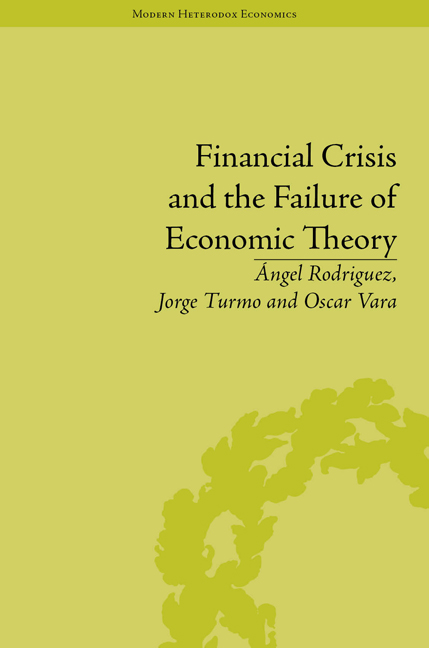Book contents
- Frontmatter
- Contents
- Acknowledgements
- List of Figures
- Introduction
- 1 The Financial Crisis and Modern Economics: From Surprise to Puzzlement
- 2 A Different Look at Economic Theory: The Anthropological Approach
- 3 The ‘Building Blocks’ of Modern Economics: We Do Really Need a Meta-Theory
- 4 The Meta-Theory at Work: A Case Study in Growth Theory and Real Business Cycle Theory
- 5 Governments and the Financial Crisis: Making Economic Policy in the Dark
- 6 Explaining More Complex Phenomena: The Financial System
- Final Remarks
- Notes
- Works Cited
- Index
Final Remarks
- Frontmatter
- Contents
- Acknowledgements
- List of Figures
- Introduction
- 1 The Financial Crisis and Modern Economics: From Surprise to Puzzlement
- 2 A Different Look at Economic Theory: The Anthropological Approach
- 3 The ‘Building Blocks’ of Modern Economics: We Do Really Need a Meta-Theory
- 4 The Meta-Theory at Work: A Case Study in Growth Theory and Real Business Cycle Theory
- 5 Governments and the Financial Crisis: Making Economic Policy in the Dark
- 6 Explaining More Complex Phenomena: The Financial System
- Final Remarks
- Notes
- Works Cited
- Index
Summary
Science is a self-correcting endeavour. Our hypotheses and results are tentative statements that have to be checked and revised as new evidence arises. Once we notice a sizeable gap between theory and reality, we must assume that some changes have to be made in the structure of the theory. In some cases the changes affect only auxiliary, non-critical assumptions, and we can still rely on that theory as a source of knowledge. Sometimes, core, critical assumptions have to be changed or even removed from the logical structure of the theory and, and such, the whole research programme has to be reshaped. Researchers can adopt a true progressive attitude toward change or can be reluctant until new, stronger evidence arises.
Nevertheless, this ideal picture of scientific progress has hardly anything to do with reality, at least in economics. Researchers support long established competing programmes which stand simply because there are ideological and/or political biases that sustain them. We have seen in Chapters 2 and 3 that neoclassicals, Keynesians and Austrians have long been struggling for the survival of their research programmes in spite of the growing empirical evidence that neglects some of their critical hypotheses as well as their main results. New and alternative research programmes have arisen in the last decades, although there is very little contact between these programmes, and also between them and the mainstream programmes. Thomas Kuhn was absolutely right when he spoke about the sociological, idiosyncratic character of the scientific enterprise.
- Type
- Chapter
- Information
- Financial Crisis and the Failure of Economic Theory , pp. 167 - 170Publisher: Pickering & ChattoFirst published in: 2014



